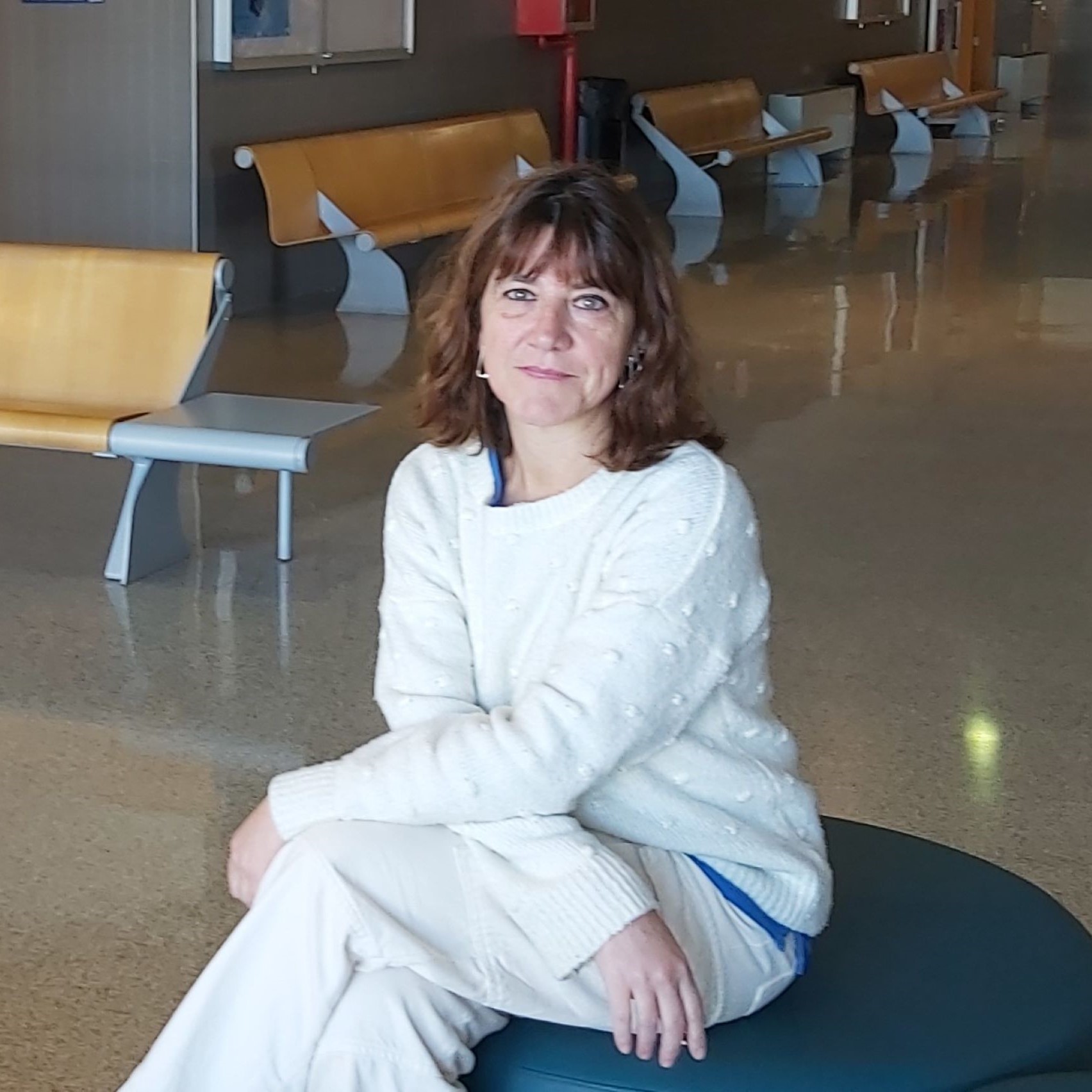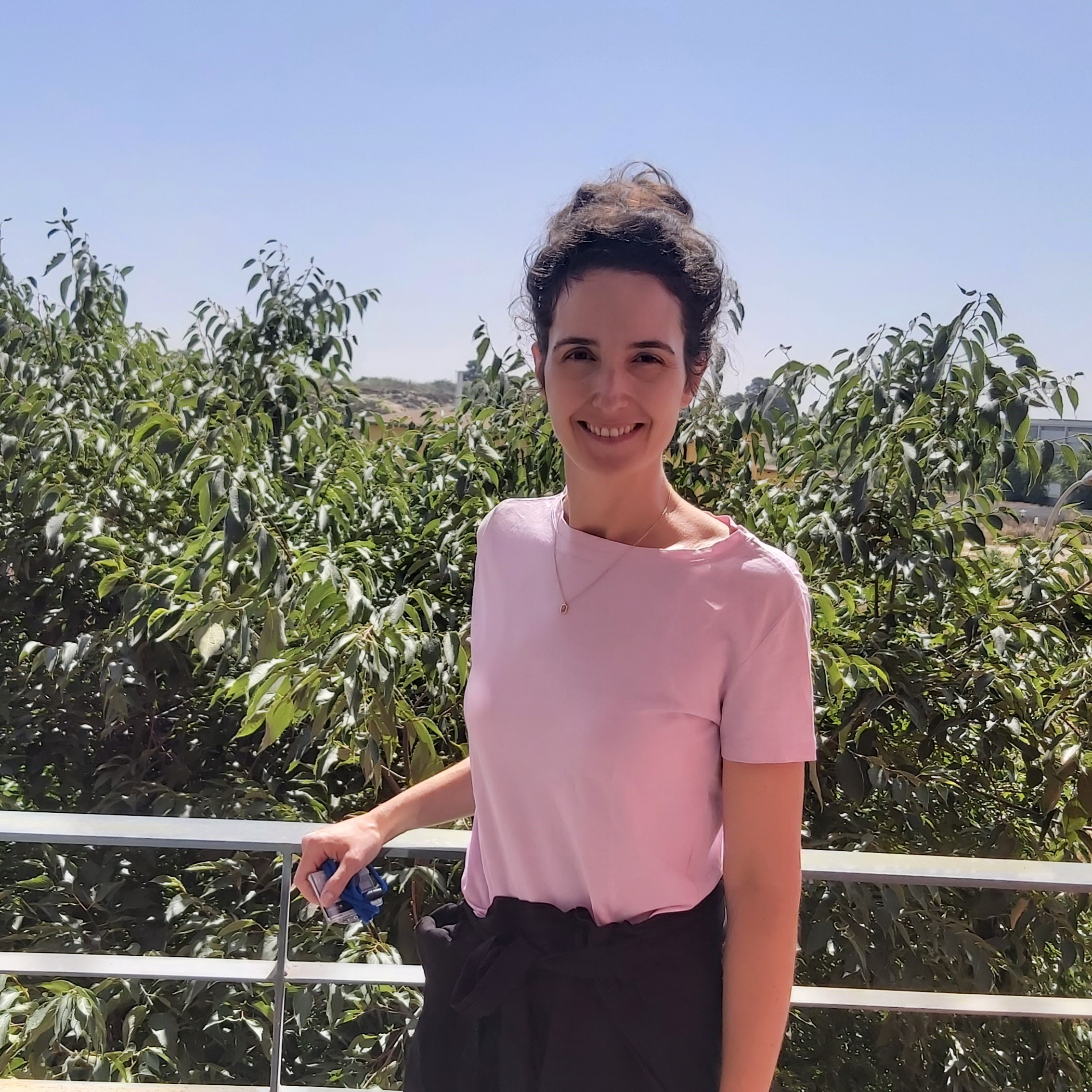
Why you decided to go into research
I believe that science and research are the way to find solutions to today's problems. I suppose I dedicate myself to it because I find it motivating and rewarding to explore and seek answers to issues and problems that serve to contribute to the advancement of society. I specifically like to work to try to mitigate the damage that we as a society are causing to the environment and it motivates me to think that perhaps we still have time to stop climate change.
Was it always clear to you that you wanted to be a researcher?
After finishing my studies, I chose to work in the private sector, working in three multinational companies where I spent more than fifteen years working in R&D departments and on research projects. However, at a crucial moment, I decided to undertake a significant change in my career, redirecting my energies to work on my doctoral thesis. The road has not been at all easy, but finally I think I am making it, getting the Ramón y Cajal grant has been very important for me, it has given me some job stability for a few years.
I have never been sure if I was doing what I really liked. Perhaps that is why I have found in research the uncertainty that drives my life. Nor am I clear now whether the path my research has taken will lead me to brilliant results or to familiar lands. It is the uncertainty of a scientific career, but also of life.
How long have you been associated with the I3A and what would you highlight about the Institute?
I have been linked to the Institute since 2008 when I worked as an associate professor in the area of Thermal Engines and Machines at EINA. It seems to me that one of its strengths is the diversity of research groups as a basis for fostering the exchange of ideas, but what I really emphasize is that in the I3A there is a formidable team of professionals in all fields that I find inspiring and motivating. Furthermore, I believe that it is an Institute that represents and fosters social commitment.
In your research group, what are your main lines or areas of work?
I belong to the Thermal Engineering and Energy Systems Research Group (GITSE). My research is focused on improving energy efficiency in buildings, I started working on reducing the demand of buildings, then on the reduction and optimization of their consumption and finally I am focused on the evaluation of the environmental impact of each of the investigated actions. The ultimate goal is to help reduce the impact of our cities and turn them into clean and sustainable places.
Is there any project of which you are particularly proud because of its impact?
I am very proud of a publication made with colleagues from other disciplines where we analyzed the potential for food production, energy and water collection on the roofs of buildings in the Rabal neighborhood of Zaragoza. A review of the study was published in the iUnizar Bulletin and in a press release of the University Institute of Environmental Sciences (IUCA). As a result of these two reviews, the study jumped to the local media and we participated in some interviews in the Heraldo de Aragon, Aragon Radio and OndaCero, among others. I found it very satisfying to be able to tell what we were doing to the general public, outside the academic field.
Any ongoing projects you would like to highlight
We are now working in the framework of a project coordinated with the University of the Basque Country and CIEMAT, funded by the State Research Agency, the project is entitled 'Smart energy storage for the decarbonization of the energy sector (STES4D)', where my main task is to assess the environmental impacts caused by different technologies and materials used for thermal energy storage. This assessment will identify the most environmentally friendly configurations to achieve carbon neutral energy supply systems. I use tools such as life cycle analysis, with the aim of integrating and generalizing the use and knowledge of these new environmental variables in any development or research.
How do you envision the future of your research area? Are there trends or challenges that you find particularly interesting or important?
Perhaps one of the most important challenges in history, curbing climate change and the deterioration of the planet due to human activity. We have destabilized the natural balance of our planet and we must commit ourselves to protect and restore it with some urgency. We must reduce the emissions we generate, not only to achieve decarbonization, which is already a major challenge, but also to restore the environmental balance that includes the conservation of biodiversity and the sustainable management of the natural resources the planet offers us.
What do you enjoy most about your profession and what do you enjoy least?
I also like teaching very much, I love to listen to the opinion of my students, it gives me inspiration for research.
The least, and here I am not going to be very original, is everything related to bureaucratic and administrative tasks. They are obviously necessary, but I think they are not optimized and, therefore, the time we invest in them is disproportionate. The good news is that there is a lot of potential for improvement. Furthermore, I would add that institutional economic investment is still insufficient; in my opinion the number of research projects that go unfunded is still too high.
What would you say to anyone thinking of going into research?
Tenacity is a good quality to be a scientist, it is not an easy path, staff stabilization problems have not yet been solved and salaries before stabilization are low, but it is a fun and exciting career, where you define the path.
CLOSE UP……
What did you study: Industrial Engineering and Mechanical Engineering
A dream to fulfil: To achieve and maintain the environmental balance between human action and our planet
What do you do in your spare time: I like to go to contemporary art exhibitions with my husband, drink wine with my friends and read a novel before going to bed
A book: When I like an author, I don't stop until I read all the ones he has published, so any of Almudena Grandes, Eduardo Mendoza or Javier Tomeo
A film: Any film by Isabel Coixet
Favourite band or singer: Los Planetas and Enrique Bunbury
A trip: Already did Mexico, and to do, Uruguay
How would you define yourself: A normal person
